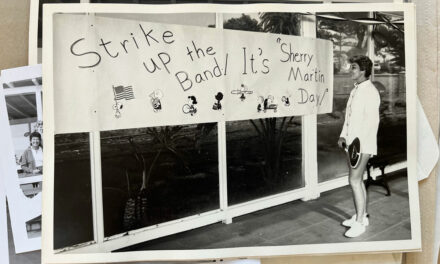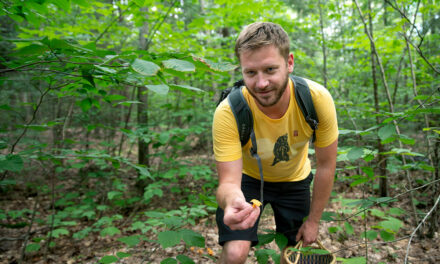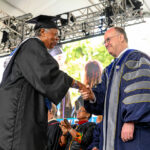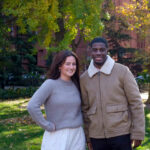
Pitching and Tossing His Way to Success
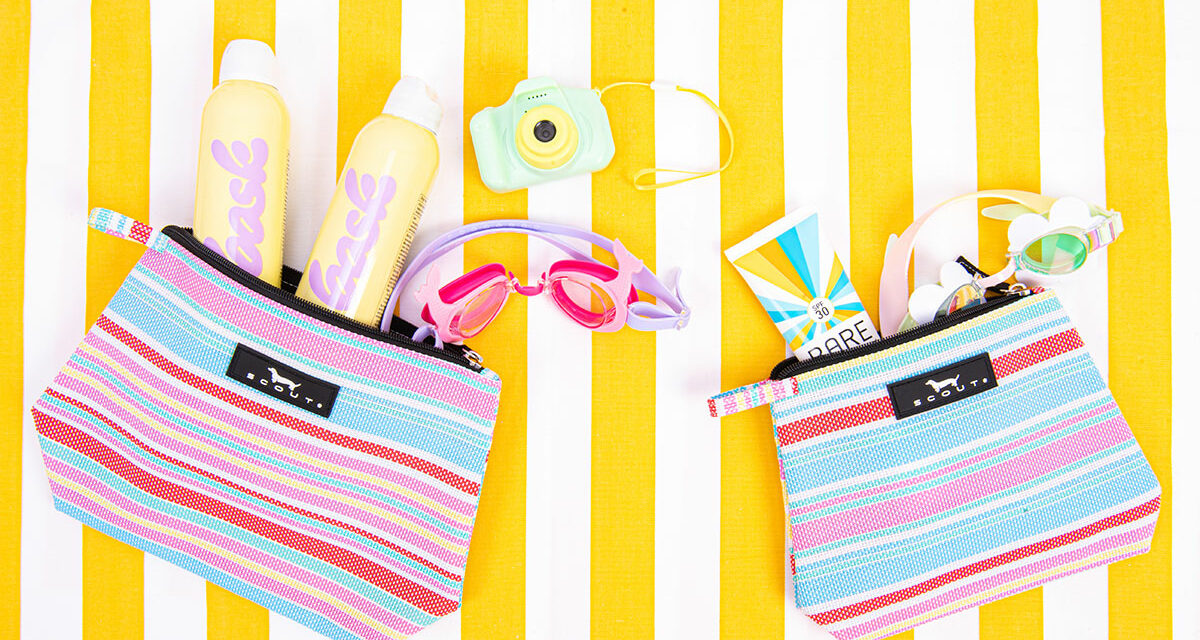
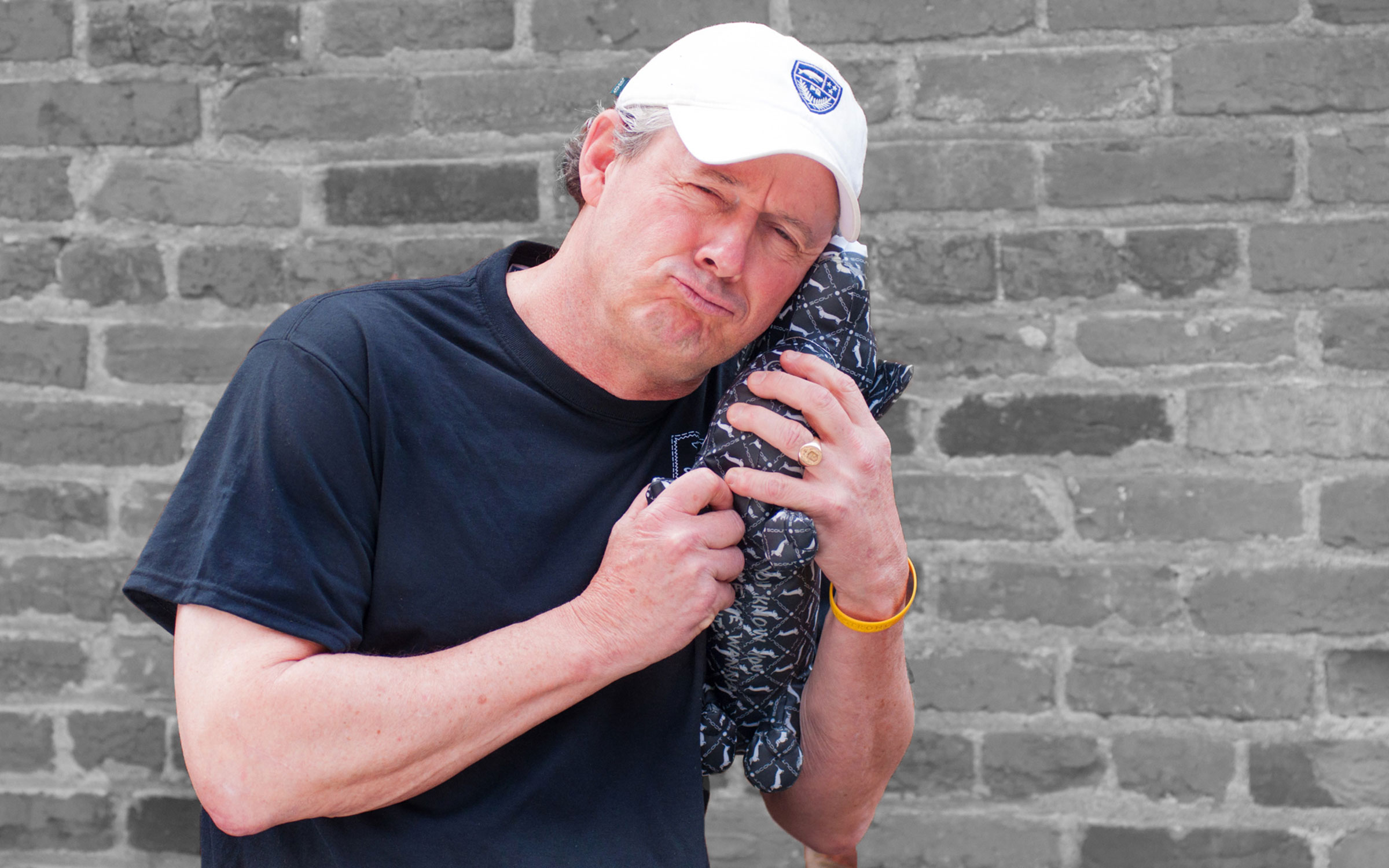
Pitching and Tossing His Way to Success
The Entrepreneurial Journey of Ben Johns ’74
BY MELISSA ULSAKER MAAS ’76
“If you can make one heap
of all your winnings
And risk it on one turn
of pitch-and-toss,
And lose, and start again
at your beginnings
And never breathe a word
about your loss…”
Ben Johns chose these words from Rudyard Kipling’s poem, “If,” to accompany his senior photos in the 1974 St. Stephen’s yearbook. From this quote, one could conclude that at the young age of 18, Ben was already prepared to take risks for a gain and unafraid of starting over if necessary. He spent the early part of his life surrounded by boys and men at St. Stephen’s School and Washington & Lee University, but today he is surrounded by women as the president and co-founder of SCOUT—a company that sells trendy, durable, affordable, brightly colored bags, with a brand that’s centered around a kooky wirehaired dachshund. Although SCOUT offers bags in stripes and patterns any man would feel comfortable carrying to the beach, men are not their target audience. None of this intimidated Ben or stopped him from pursuing a promising idea—he was willing to risk it all on one turn of pitch-and-toss…and some super cool bags.
Sitting in his SCOUT Office, Ben just happens to have his St. Agnes second grade photo at his fingertips and holds it up. “So, I’m the goofball on the right with the football and my tongue sticking out,” Ben grins. The Johns family were part of St. Stephen’s and St. Agnes from very early in the school’s history. His father, Ben Johns, Sr., was a science teacher at St. Stephen’s from 1948 to 1958. He also coached football and tennis—and jumped in to help with other sports as needed. “I have a picture of him with what looks like the Bad News Bears football team,” Ben laughs. “They didn’t even have matching helmets or face masks.” Ben’s mom, Betty, ran the St. Agnes bookstore from 1970 to 1977, and although only Ben and his sister, Page Johns Sullivan ’70, graduated from SSSAS, but his brother Randy ’82 and sister Elizabeth ’71 also attended. Years later Ben’s daughter, Gussie ’14, would also become a Saint. In 1958 his father left SSSAS to teach at Episcopal High School, and the Johns lived there on the campus until 1989.
Ben spent first and second grade at St. Agnes, before attending St. Stephen’s which started in third grade. He thrived and as high school approached he wanted to stay, rather than go to Episcopal. “I sort of begged my dad,” Ben says. “Sleepy Thompson had been coaching me since third grade and it was one of my dreams to play for him—he’s one of my heroes and he greatly impacted my life.”
Ben was involved in school life, performing service through participation in the Red Key Club, serving as a Student Council representative all four years of high school, and working on the Scroll yearbook staff in his junior and senior years. He fondly remembers Assistant Headmaster Willis Wills, Lower School Principal Dick Babyak, Math Teacher Marty Bamberger, Math Teacher Henry Biddle, and French Teacher Rene Wenger. “I was probably his worst French student, but I loved Mr. Wenger,” Ben says. “He was a great guy. All those men often wore several hats and worked hard to educate, coach, and shape us.”
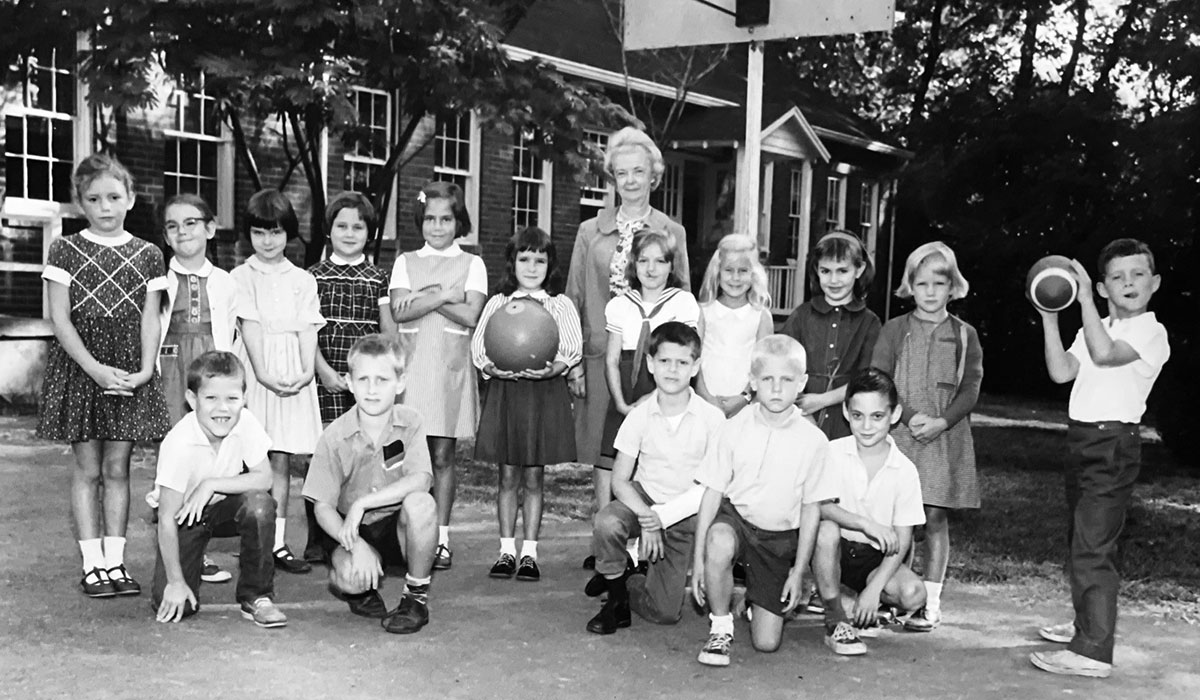
Top photo: Ben Johns, Jr., in second grade on the far left; bottom photo: Ben’s father coaching football at SSSAS.
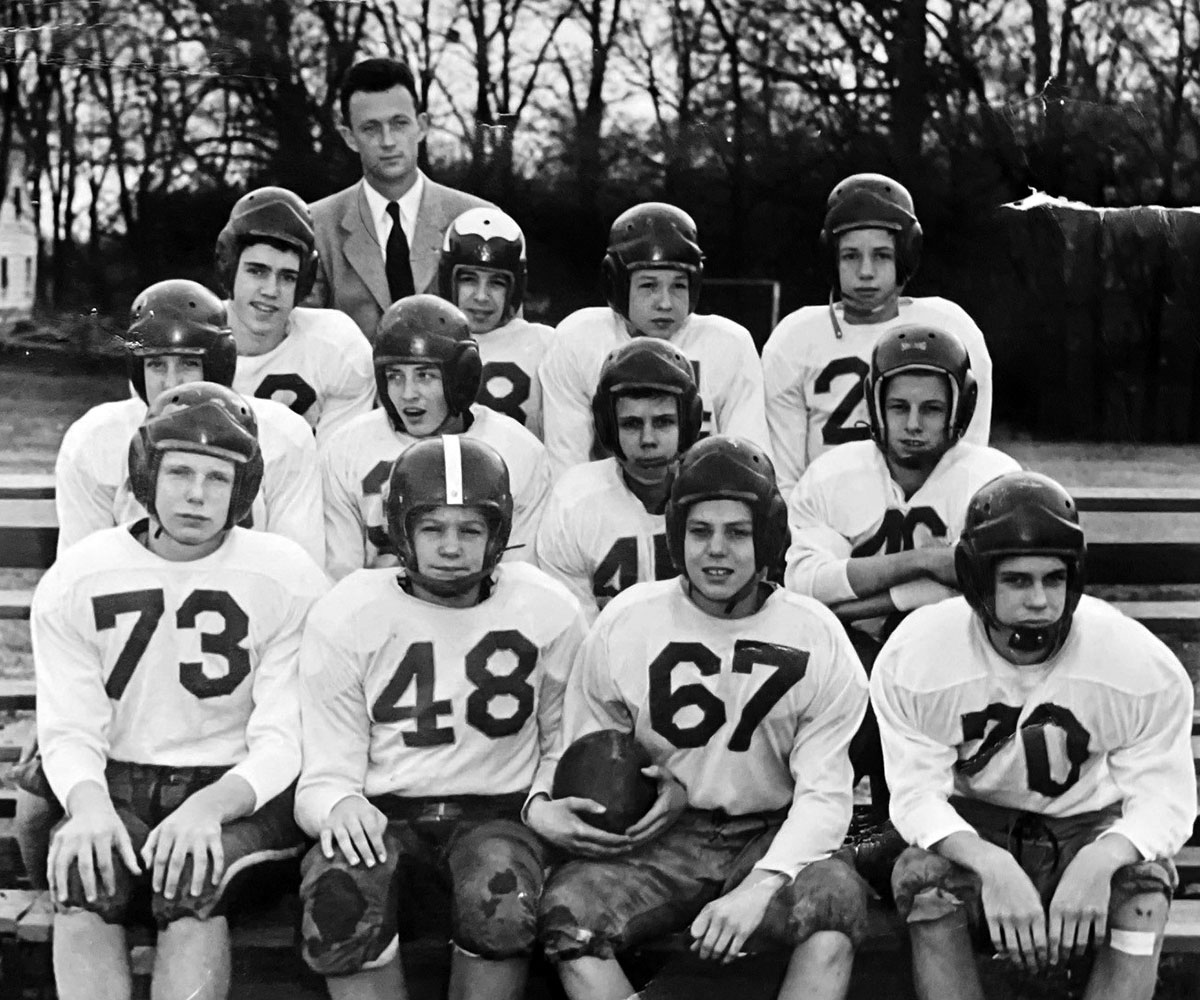
Ben was also a three-sport athlete, playing football, tennis, and basketball. Although he was successful on the football field—All IAC and All Met—his aspiration was to play college tennis. “My dad was a tennis coach at Episcopal for over 15 years and they named the IAC Tournament after him,” he says. Ben played tennis 4 years for Washington and Lee and led the team to back-to-back second place finishes in the NCAA DIII National Championships. He was also the school’s first tennis All American, National Doubles Champion and player inducted into the Hall of Fame.
During the summer, Ben worked at tennis camps, including two years working for well-known American tennis coach Nick Bollitieri, who brought his tennis camp to Episcopal. He also worked at Amherst College, Gibson Island, and Belle Haven Country Club. “I was playing a lot of tennis and I liked to teach—that teaching gene runs through my family,” Ben says. “My sister was an art teacher, my other sister married a head of school, and my brother is a golf pro at River Bend Country Club.”
The Journey to SCOUT Begins
Ben left W&L with a bachelor’s in commerce, business administration, and management, but continued teaching tennis while he figured out what he wanted next. He taught tennis at the University Club in Memphis, Tenn., and the Homestead in Hot Springs, Va. While he was at the Homestead, fate brought him together with one of his tennis students, Malcolm Hirsh, who led him into the next phase of his life, screen printing and manufacturing.
Malcolm was from a wealthy Far Hills, N.J. family who spent their summers on their farm in rural Bath County, Va. In 1957, he bought the defunct lumber-mill town of Bacova and turned his attention to refurbishing it. He opened a fiberglass screen printing company that put artist Grace Gilmore’s wildlife designs on ice buckets, trays, tables, and the company’s signature product, the Bacova rural mailbox. By the 1980s, Malcolm was looking to sell and Ben and fellow tennis pro Pat Haynes knew they didn’t want to play tennis forever. They shared entrepreneurial ambitions they wanted to test off the tennis court.
Ben and Pat bought Bacova in 1981, which at that time had 20 employees and sales of $500,000 per year. In 1996 their annual sales were around $50 million and they sold the company to Burlington Industries. “The sale gave us the opportunity to exit the company,” Ben says. “But I’m really most proud of the fact that we created 500 new jobs in a very rural area of Virginia that had previously boasted the highest unemployment rate in the state.” And now, ironically, they do all of the fulfillment for SCOUT.
A Dynamic Duo
After buying Bacova, Ben went to his first trade show in New York City, where he met Deb Waterman. A graduate of Cornell with a degree in textiles, Deb had landed a job with Vogue as an assistant fabric editor in a city she dearly loves. They dated long distance for five years. Deb recalls that the longest period of time they spent together was on their honeymoon. A match made in heaven? According to Ben they are “polar opposites” and Deb says, “Someone asked me years ago if Ben and I agreed on things. I said ‘Nothing little, everything big.’ And that’s the truth.” If Deb hadn’t met Ben, she would have lived her whole life in New York. She has the same vibrancy and energy as the city she adores, and her creativity is electric, zinging out of every pore.
For the next 15 years Ben and Deb only saw each other on the weekends, because he was still growing his business in rural Virginia and she was back and forth between New York and Washington, D.C. “I’m very grateful to have moved to D.C. to raise kids, I think that Washington is a much more balanced world,” Deb says. “It’s not nearly as inspiring if you are in the world of design, but there are so many incredible people here making change in the world, and that’s what our kids have been exposed to.” Those weekends they spent together resulted in four children, three boys and a girl—but Ben says, “Deb’s incredible energy and talent continues to raise the bar of excellence for our business and family. She is truly a unique creative force who inspires the people around her, accomplishing more in a day than I do in a week.”
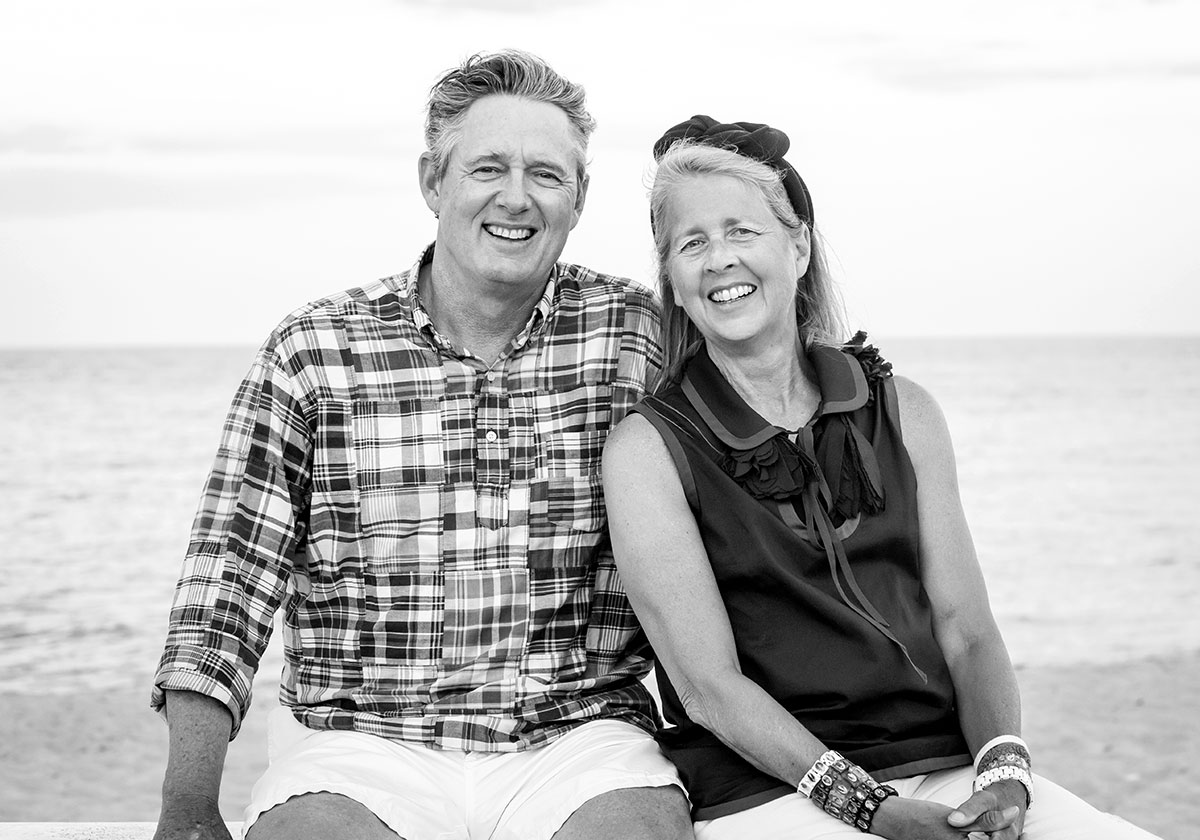
“When we got married, I went back to New York, Ben went back to Hot Springs. The longest we’d ever been together was on our honeymoon.”
– Deb
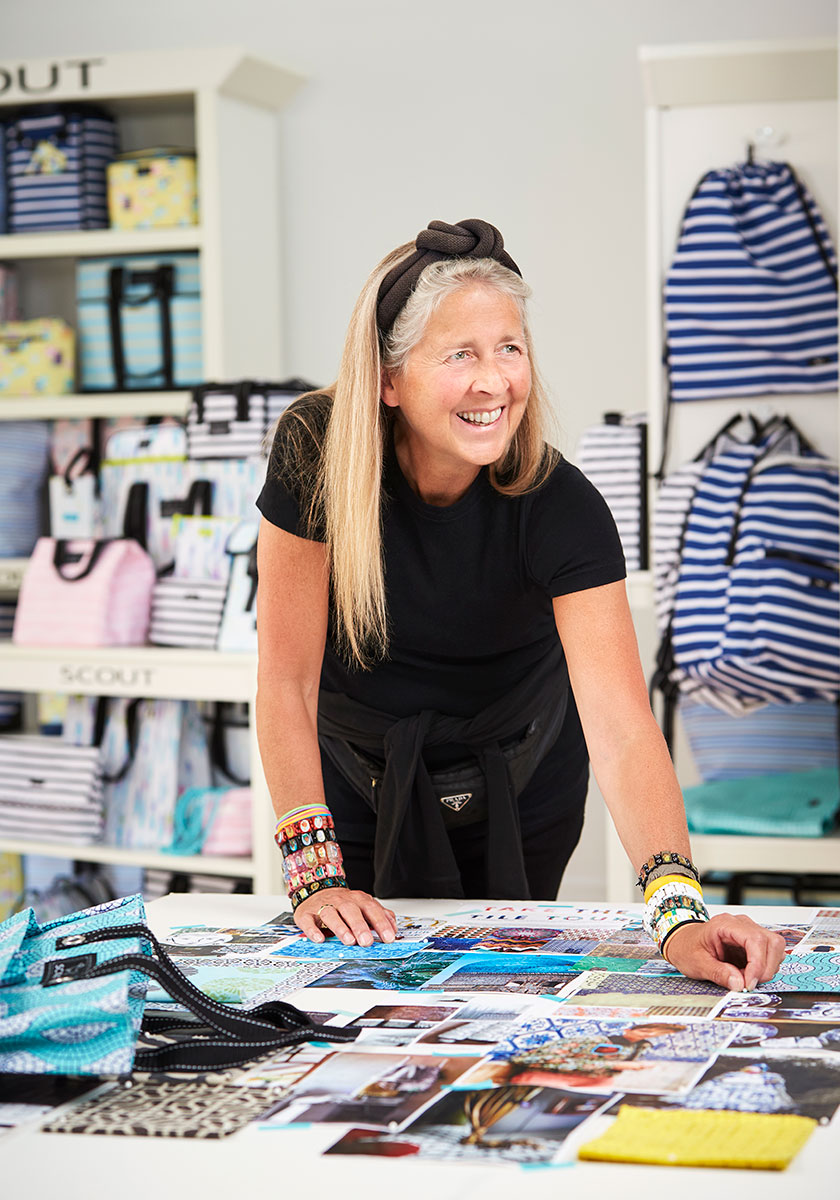
“Deb’s incredible energy and talent continues to raise the bar of excellence for our business and family. ”
– Ben
Deb served on two international color boards and worked in color and trend forecasting for notable fashion designers and brands. In D.C., she was doing pop-ups at their pool house for women in Washington, selling jewelry made by her former boss at Vogue. “I started bringing things back from my trips,” Deb says. “I had sold some very inexpensive bags that I found on Canal Street in New York. They cost me $3.25. They were huge, they smelled terrible, but they held a lot of stuff. All of my friends were knee-deep in kids and work and needed big bags. I sold them all within two hours for $20 each.” On a trip to Milan, she saw a bag out of the corner of her eye that was intriguing. “I went into this very well-known designer store and asked if the bag was for sale,” Deb recalls. “He said, ‘Yeah, but it’s just ugly.’ I said, ‘It’s not pretty, but I still want it.’ And he said, ‘It’s like $450.’ But I insisted I wanted the bag.”
In the midst of an “aha” moment, Deb told Ben about the bags and the wheels started turning. “Trend in the world of fashion starts at the top and the bottom and meets in the middle,” Deb explains. “We had an opportunity to create our own bags, and make them prettier and make them more dynamic.” Neither Ben nor Deb had dreamed of working together, because they had always heard it’s best not to start a business with your spouse. But in this case, being at opposite ends of the spectrum worked. They clearly respect and admire each other’s abilities. “I really wanted to build a business around Deb’s creative talents,” Ben says. “She had worked with and for designers her whole life. We knew if we could find the right product that we could work together, with her on the creative side and me on the business side. In those circumstances, we thought we could build a business and, hopefully, be able to stay married!”
Who Is Scout, Anyway?
Deb had always wanted to name a daughter Scout, after her favorite literary character from “To Kill a Mockingbird.” Then three months before she had their fourth child and only girl, Demi Moore beat her to the punch. Deb and Ben called their daughter Gussie and decided to get a dog and name it Scout. Deb had grown up with Dachshunds and really missed having one. Scout was a crazy wirehaired Doxie that Deb swears was part otter. “He was one of the funniest dogs—really a curmudgeon, but so funny,” Deb laughs. “When we were looking for a brand name, we wanted something a little irreverent, a little unexpected. Dachshunds are determined, strong, and focused, just like our brand is, so we thought why not name the company after Scout.”

This is Scout, the company’s adorable namesake.
Since launching SCOUT in 2004, Ben and Deb have discovered they work well together and like their family life at home, they have created a happy, positive vibe at SCOUT. “We both get such joy out of working with young people, mentoring and teaching them,” Ben says. “If we’re not laughing every day, then it’s not a day at SCOUT.” Their strategy to divide and conquer has not only been successful, it’s gotten better over time as their roles have become more defined and the staff has expanded to 40—36 women and four men. “It takes a brave male to be with all these females,” Deb says with a sparkle in her eye.
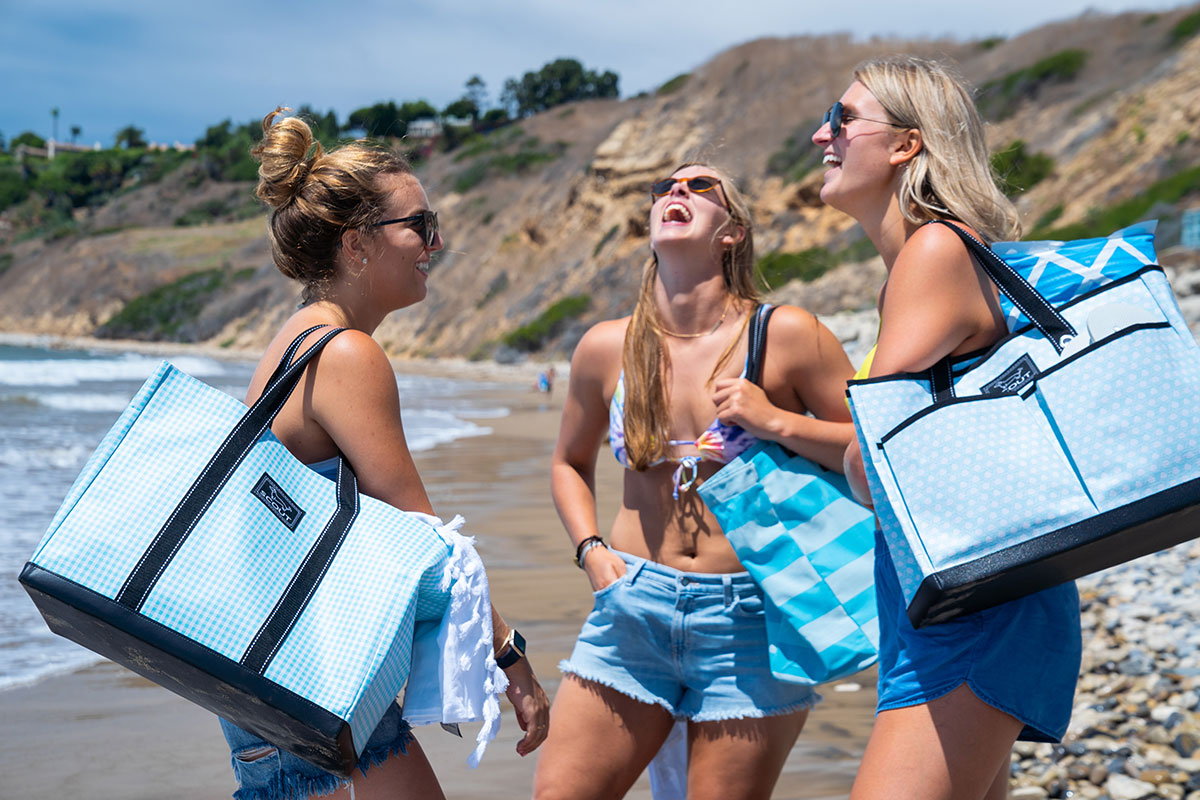
“We both get such joy out of working with young people, mentoring and teaching them. If we’re not laughing every day, then it’s not a day at SCOUT.”
– Ben
What sets SCOUT bags apart from their competition? They are lightweight and durable, they are wipeable and washable, and they are fashionable while being really functional—they fold completely flat to store easily. “They’re not designed to be fancy schmancy, but they’re designed to bring some color and some fun and some pattern into your daily life,” Deb says. They sell large and small totes, coolers, lunch boxes, duffels, travel bags, storage bins and fashion accessories. Their customers range in ages and stages from kids to college students, to moms, nurses, and teachers.
SCOUT has grown into an omnichannel brand selling through five channels of distribution, primarily to over 1500 Specialty stores and online through their ecommerce site and Amazon. They spend a lot of time focusing on who their customers are, meeting their needs, and marketing to them through multiple channels. Social media became particularly important during the pandemic. SCOUT has a community of followers whose comments confirm the popularity of the bags, give insight into things they are looking for in a bag, and ask for recommendations about which bags they need.
SCOUT’s creative team constantly produces new on trend content to meet the needs of their loyal targeted customer base. “It’s very important that we continue to look where people are tuning in and where they’re not as interested and adjust accordingly,” Deb says. “From the conception of the product to the time it goes out the door, it’s very important that it stay authentically the voice of SCOUT. And that’s certainly a team voice, not just mine.” That voice is consistent and it’s fun. Scout doesn’t use professional models for their photo shoots, they use staff, friends, and family. Deb and Ben celebrate the many different talents and abilities of their employees, which adds value to their social media and brand. “The key to our success is our people,” Ben says. “At the end of the day, it’s always about having the right people sitting in the right seats on the bus.”
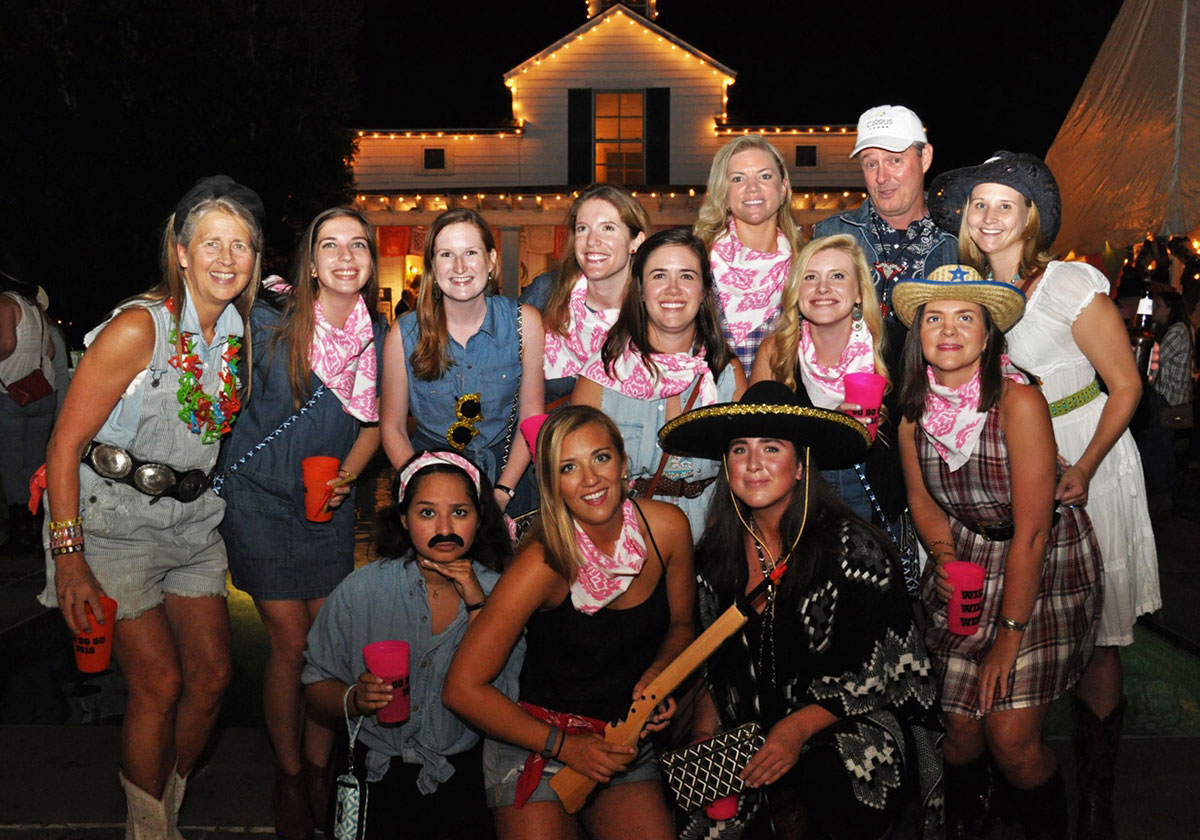
Deb and Ben with the SCOUT team at the Go Bo Wild Wild West party.
Giving Back
In the middle of an already hectic existence, balancing raising their family with work and business trips, life threw Ben and Deb a huge curve ball. At the age of 11, their son Bo was diagnosed with large B cell lymphoma, discovered during a routine tonsillectomy. They felt so fortunate to be living in Georgetown near the best possible pediatric care, and very lucky to have incredible support from their family, neighbors, and friends. While Bo had everything he needed, they realized many of the children in the ward were not so lucky. Family and friends didn’t live nearby and their insurance wasn’t on the same level as Bo’s. Ben and Deb heard about a small discretionary fund the social workers at the hospital had access to for families who were struggling, which had never had more than $1,000 in it. Determined to help, they sent letters to 1,200 people telling them Bo’s story and asking for donations to honor him in his fight. The money started pouring in and the donations motivated Bo and kept him feeling positive through treatment and remission.
During the past 18 years, the Johns have put about three quarters of a million dollars through the Go Bo Fund, trying each year to raise $50,000 to $75,000 for the Georgetown MedStar University Hospital Emergency Family Relief Fund. Their fundraising efforts include the annual Go Bo Go Party, a real celebration of life. They always choose a different theme with coordinating decorations and food and attend in costumes. Scout also supports the fight against breast cancer year-round. Each time a customer purchases their pink check “Victoria Checkham” pattern, a portion of the proceeds are donated by Scout’s Pink Check Fund to the Breast Cancer Research Foundation.
Ben and Deb Johns have created a number of families—their biological family, a family of friends, a work family, and the Go Bo Fund family. They didn’t have to be alike in character or be with each other every day of their marriage to have fulfilling lives and a strong relationship. In fact, building Scout together has been proof that when opposites do attract, they can make very strong and successful business partners. Their advice for anyone wanting to start their own business? “Love what you do, because any entrepreneurial situation is going to be more work than you ever imagined!” And if you take a risk and lose, just be prepared to start again at your beginnings.

